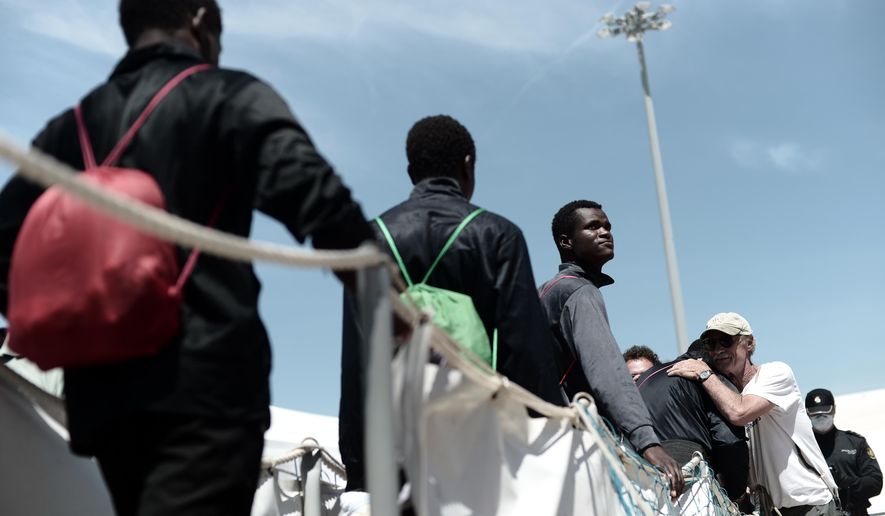BRUSSELS (AP) - The Latest on the immigration debate in Europe (all times local):
2:20 p.m.
Bosnian border police have stopped about 100 migrants from reaching the border with European Union member Croatia.
Police on Monday blocked the migrants near the border crossing in northwestern Bosnia. Local media say police are trying to persuade the migrants to turn back.
The group has moved toward Croatia from the nearby town of Velika Kladusa where hundreds have been staying in makeshift camps while looking for ways to reach Western Europe.
Peter Van der Auweraert, from the International Organization for Migration, tweeted that the attempted group crossing is a “very worrying development that risks to create backlash that is not in interest of anyone.”
Migrants have recently turned to Bosnia in order to avoid more heavily guarded routes through the Balkans.
___
2 p.m.
The international Red Cross says that the number of people migrating through the Balkans is on the rise and they are in dire need of basic humanitarian support.
The International Federation of Red Cross and Red Crescent Societies said Monday that more than 5,600 migrants entering Europe through Greece have reached Bosnia and Herzegovina so far this year, compared with only 754 in all of 2017.
The Red Cross also said that in Montenegro, 557 asylum requests were registered in May, the highest monthly figure in five years.
Simon Missiri, regional director for Europe, said his group’s Balkan offices need more assistance to help cope with the increased number of migrants.
Since peaking in 2015, the migrants’ use of the Balkan route toward Western Europe has been impaired in part by Hungary’s construction of razor-wire fences on its southern borders.
___
1:20 p.m.
A top Spanish official says that more than 300 migrants who are in Spain after their rescue boat was rejected by other European governments are requesting to be granted asylum in France.
Spain’s Deputy Prime Minister Carmen Calvo told Spanish radio Cadena Ser on Monday that half of the 630 migrants who arrived at the Spanish port of Valencia on Sunday on convoy of ships, including the rescue boat Aquarius, expressed such a desire.
She called the agreement with France “an example of cooperation” within the European Union.
The Aquarius completed a 1,500-kilometer (930-mile) journey from Sicily to Valencia, ending a weeklong ordeal for the 630 people rescued from the Mediterranean Sea, only to be rejected by Italy and Malta.
Spain’s new center-left government granted the migrants 45-day stays to sort out their legal status.
___
12:15 p.m.
The Vatican and Mexico are lamenting how children “are suffering the most” from migration, as the Trump administration comes under increasing criticism for its policy of separating children from their parents at the U.S.-Mexico border.
The Vatican on Monday released the conclusions of the second Vatican-Mexico conference on international migration, held last week at the Vatican.
The statement made no explicit reference to the U.S. separation policy, though it stressed the need to “insist on the centrality of the human person in every political act … reaffirming the inviolability of human rights and the dignity of every human being on the move.”
The U.S. conference of Catholic bishops has condemned as “immoral” the Trump administration’s policy of separating children from their parents at the border, which the U.S. has defended as enforcing the law.
___
10 a.m.
The European Union’s asylum office says the number of people applying for international protection in Europe has plunged but remains higher than before 2015, when more than one million migrants entered, many fleeing the war in Syria.
EASO said in an annual report Monday that 728,470 application requests were made for international protection in 2017, compared to almost 1.3 million applications the previous year. It says around 30 percent of the applicants come from conflict-torn countries such as Syria, Afghanistan and Iraq.
EASO says there is a still a backlog: more than 950,000 applications were still awaiting a final decision at the end of last year, almost half of them in Germany.
Over 460,000 people applied for asylum in Europe in 2013. More than 660,000 did so in 2014.




Please read our comment policy before commenting.